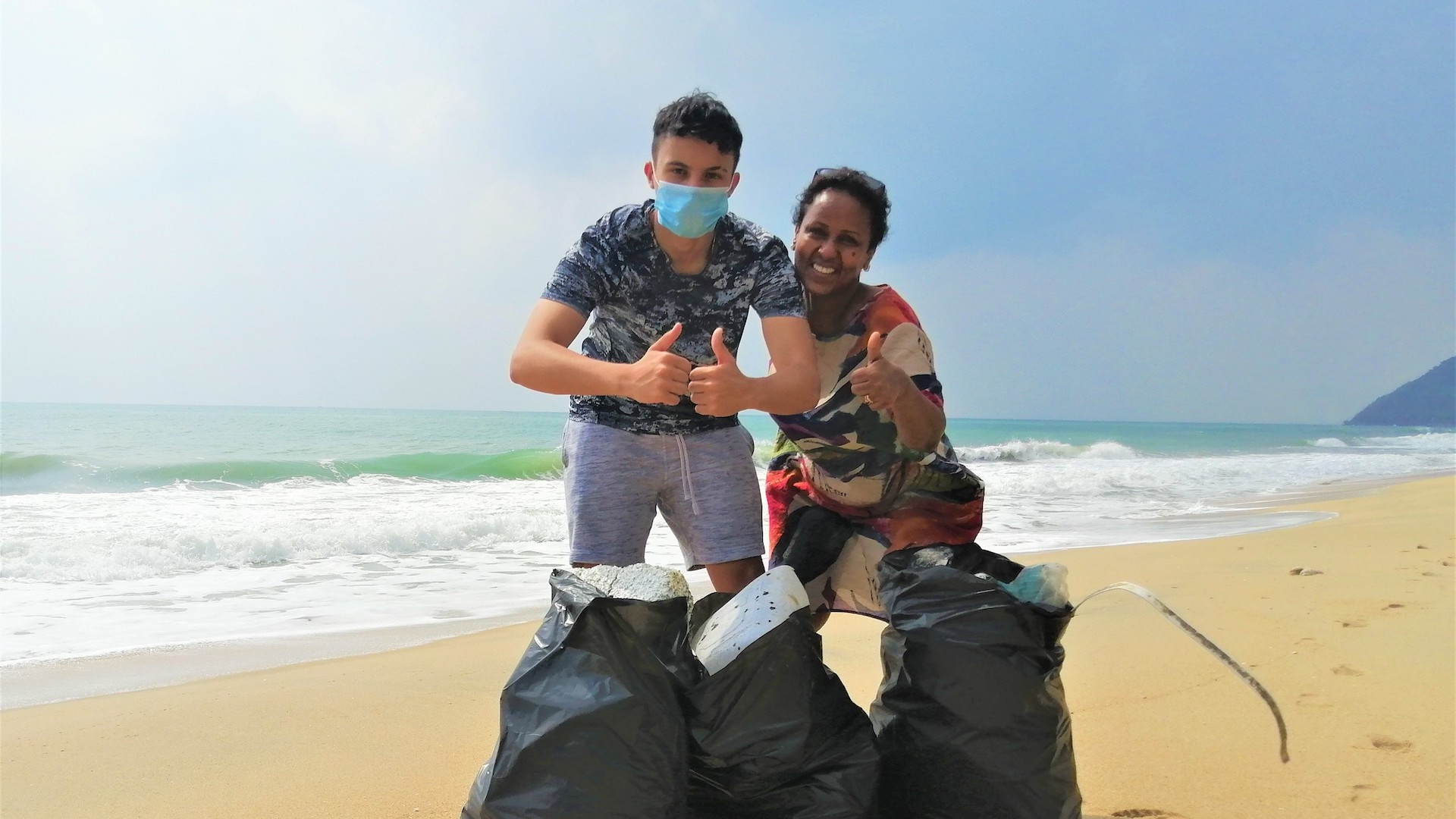As part of understanding more about plastic pollution and how severe the situation is in Thailand, I investigated the effects of increased plastic consumption and how it affects some of Thailand’s most beautiful locations. A beach was chosen at random and in the location of Ban Krut, around 100 km south of Hua Hin, a mini beach cleaning experiment was conducted to analyse and observe the seriousness of this current global issue. The beach was chosen at random and for 15 minutes me and my father had collected any form of plastic we had found over a stretch of 100 metres. We had accumulated over 180 litres of plastic and collected 3 full plastic bags within less than 15 full minutes. To further understand how intense the situation is, we had gone during March 2021, where locations like these in Thailand that are rich in tourism and receive many visitors throughout the year have suffered the effects of the Covid-19 pandemic and therefore has resulted in a very small numbers of tourists. We had found out usually the plastic in this and many resorts were accumulated and burnt by the resort staff, to get rid of the plastic. This fills the air with toxins that, if inhaled too much, can cause dangerous cancers and health issues. Therefore to address this issue and bring forth the consequences, we had discussed the problem and suggested to the resort management to accumulate the plastic and dispose it or transport it to a recycling plant to make use of these thrown away plastics. Overall, the experience was very interesting and educating as I learnt the scale of how big the issue of plastic pollution is and how it now affects every region and area in the world. If we were to extrapolate our findings and extend the data of the 100 m to all of the gulf of Thailand and its beaches, then we can see how on a national scale, the coast of being filled with plastic can lead to severe damage to these beautiful locations that attract millions of tourists each year, leading to potential future economic repercussions if no progress is made in this field. To combat the issue, the effects must be reversed. Large scale beach cleanings need to be made to keep these locations around the country clean and bring forth their natural beauty, as well as to prevent the harm they cause to the wildlife species in the area. In addition, further progress must be made in plastic consumption and plastic-waste-management. Less plastic must be used and we should switch to more sustainable materials. Lastly, the awareness and education on this topic is crucial for current and future generations to fully understand the consequences of the issue.


